Silent Hill is a franchise near and dear to my heart. I have all of the Team Silent-era soundtracks on beautiful vinyl, I plan on introducing the game to my girlfriend this Halloween, and I even have a soft spot for the first Silent Hill movie.
Yet, for some strange reason, despite being the spark that made me want to become invested in the franchise in the first place, I didn’t play Silent Hill: Homecoming until fairly recently, which I think I can chalk up to the lukewarm reception it received early on, but probably mostly due to the vitriol that it inspires in fans of the series nowadays. To many, the game is a symbol for everything that went wrong with the franchise and is considered by a large percentage of fans to be the worst Silent Hill game by a mile.
And on the 15th anniversary of its release back on September 30th, 2008, as much as I would love to be a contrarian and say how the game is actually a misunderstood classic and deserves a second examination, I simply can’t. Silent Hill: Homecoming is the worst game in the series, and is emblematic of nearly every negative thing about the franchise and its perception in popular culture. While I think Konami’s mishandling of the franchise in the 2010s may have had more of a detrimental effect on the longevity of the series, Silent Hill: Homecoming served as the turning point where even the staunchest Silent Hill fan realized that there was no hope that Team Silent magic was coming back. Simply put, Silent Hill: Homecoming sucked 15 years ago and it still sucks today.
If you were to ask any Silent Hill fan why the game failed to garner affection within the Silent Hill community, they’ll probably point to one of two different things; it was developed by a Western studio (Double Helix), and it was heavily inspired by the movie. So let’s break both arguments down to their core reasonings.
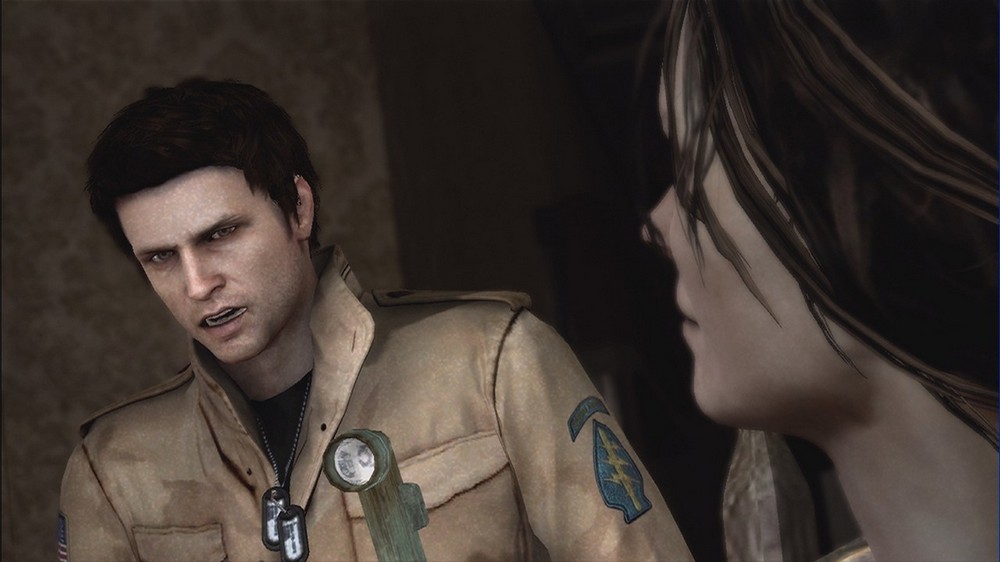
After Team Silent was disbanded following Silent Hill 4: The Room, Konami shopped the franchise around to several Western developers with the goal of them helming the future of the series. This is somewhat in line with a general perception in Japan at the time that Japanese-developed games somehow weren’t viable in a Western market despite there being little if any, evidence to support that claim. Regardless, Silent Hill: Homecoming was the first entry in the franchise to be developed by Americans given that the previous Western-developed Silent Hill entry, Silent Hill: Origins, was actually developed in England. Why does this matter? Because the game reeks of American eccentricities and uses that to define its protagonist instead of character development.
Our main character, Alex Shepherd, is a soldier returning from active duty, and the game wants you to make sure you know that. Most characters will talk about Alex’s military career, or sometimes he’ll say it himself, but there’s never any real discussion of that and what it means.
Previous entries in the series always spend time trying to flesh out who their central character is, but Alex doesn’t get that development. His military career is meant to be shorthand to signify to the audience the kind of person that Alex is and what he’s capable of. He can fight the monsters of Silent Hill as well as he does because he’s a soldier and therefore has combat training. The reason why he has a no-nonsense attitude is that he probably had that exact same mentality while he was on duty. None of this is actively stated within the game mind you, we’re just meant to fill in the holes of weak characterization with our own perceived connotations about Alex’s career, making him an uninteresting protagonist to actually control.
But what makes the game truly boring is how little it actually does that’s special or original. Not every game in a franchise needs to be a grand innovation, but they at least needs to have a unique identity of their own. Silent Hill: Homecoming’s identity comes from how much it takes from other entries in the franchise, the most obvious source being the 2006 Silent Hill film.
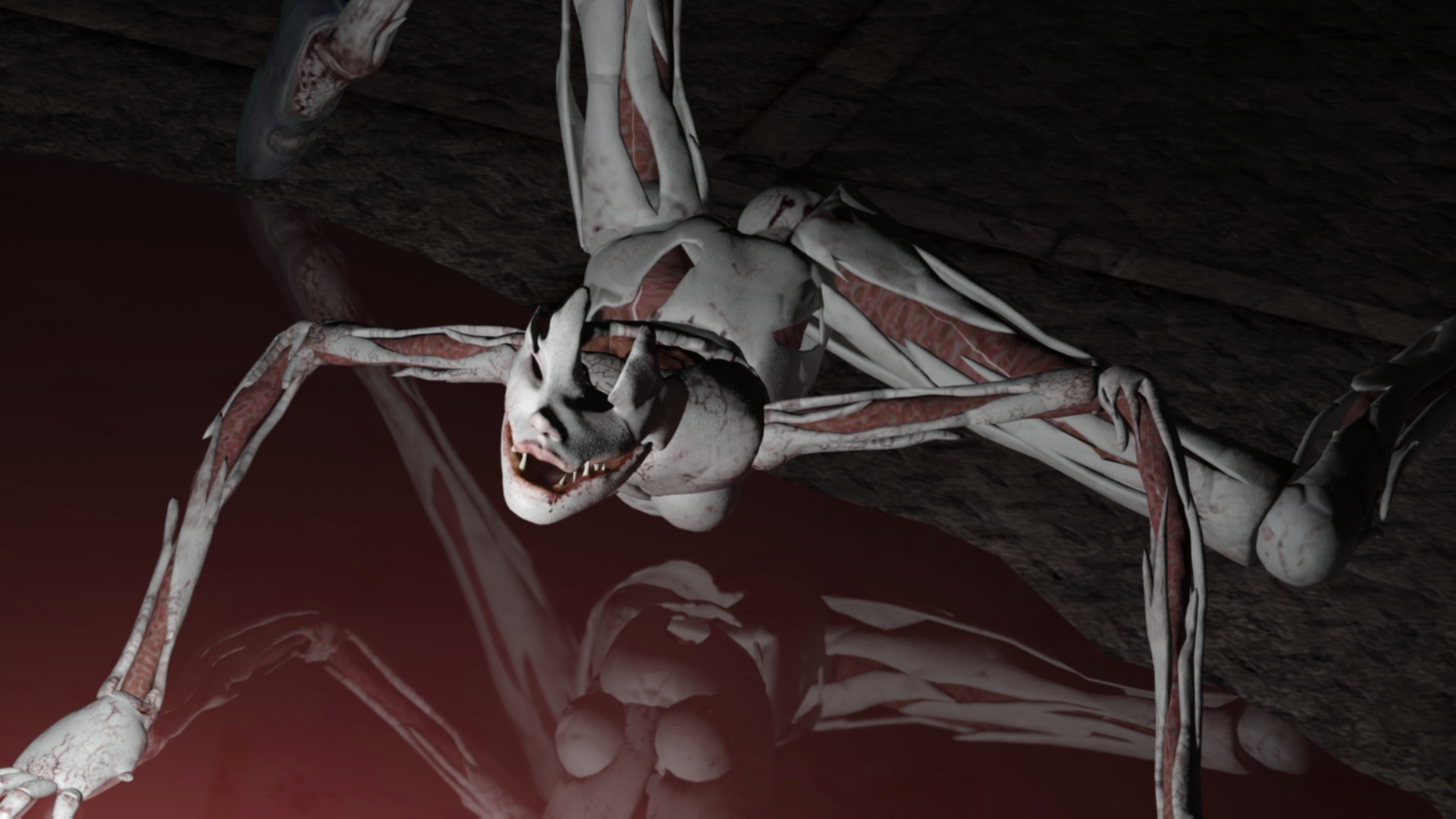
ts depiction of the cult of Silent Hill is almost exactly in line with how it’s shown in the movie, and even retcons elements of the franchise that have been deeply associated with the series since the first installments in order to better align with the film. Nearly all of the enemies you encounter are enemies from the Team Silent games despite that not making any logical sense with the story Double Helix wanted to tell. Even Pyramid Head makes an appearance! Why? Very good question!
There’s a difference between homage and replication that I don’t think Double Helix understood when crafting Silent Hill: Homecoming. Homage implies that you are paying reverence and respect to something by referencing it, but still trying to carve out something distinct and fresh. In order for an homage to count, you need to actually do something with it. You can’t just put sexy nurses or Pyramid Head in a Silent Hill game and call it an homage. Those creatures carried very specific meaning to James Sunderland, the protagonist of Silent Hill 2. When removed from that context, they just become random monsters that Alex has to fight because the game is forcing him to.
If you want to homage Pyramid Head, look to Silent Hill: Downpour and its unkillable monster the Bogeyman, which has meaning and purpose to its own protagonist and his inner demons. Seeing Pyramid Head in a cutscene in Silent Hill: Homecoming means nothing to me because it means nothing to Alex. There is no horror without a purpose behind it.
But if you want to kill any and all sense of horror, the gameplay will certainly do that all on its own. The decision to make Silent Hill: Homecoming focus extensively on combat is a bold one, provided the combat is good. Needless to say, it isn’t. It is very easy to be overwhelmed in combat as you play. The game snaps you into one-on-one encounters where the monster you’re fighting will erratically attack you in a dimly lit environment, making survival incredibly difficult as you try to duck a weave through attacks you can barely see.
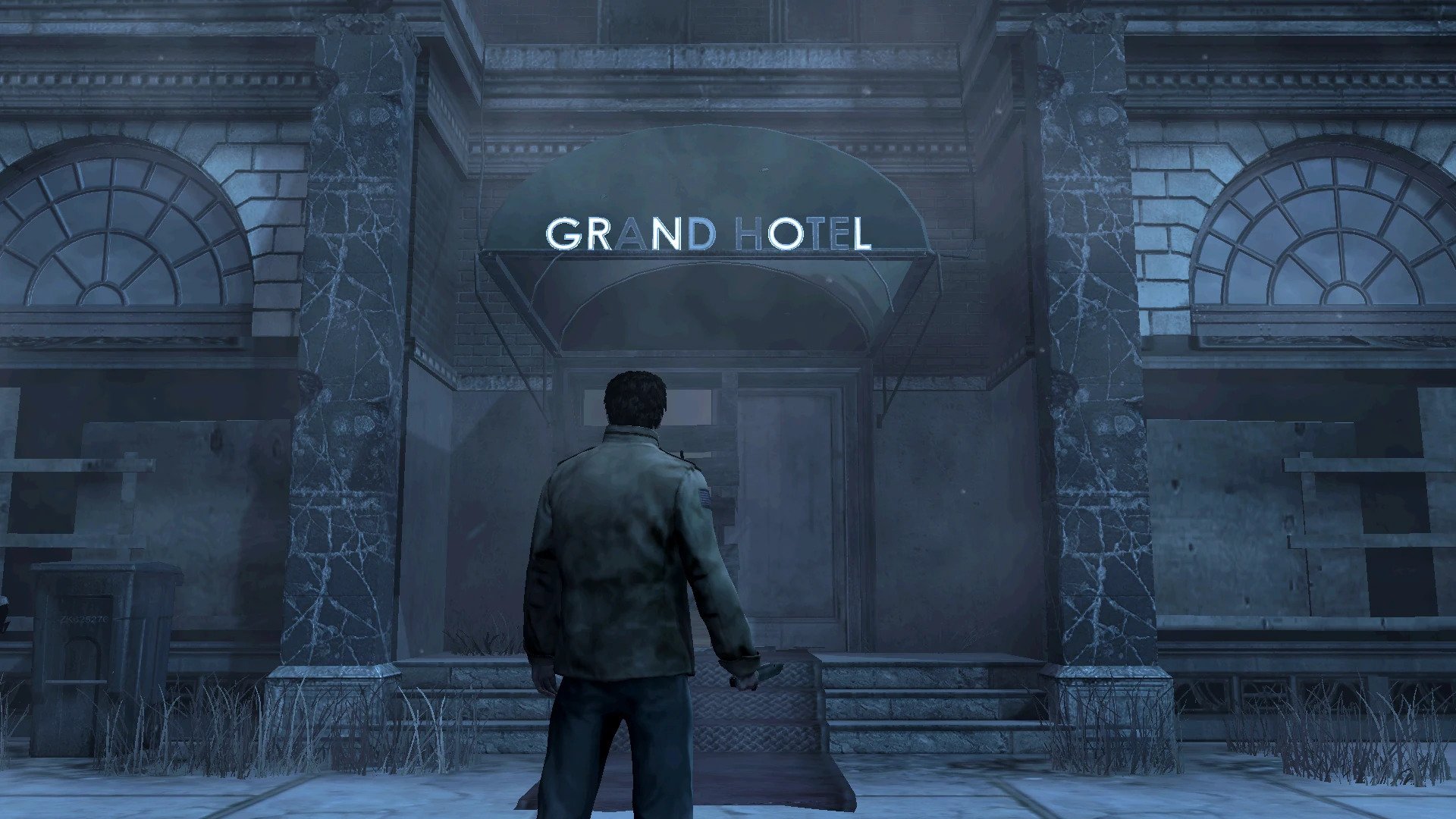
Combat in any Silent Hill game is meant to be clunky, but it’s clunky because the game makes you feel like an average person with no combat experience trying to fight monsters. You scrape together weapons and smash them around to defend yourself. Combat shouldn’t be clunky with a soldier who is able to fight and be proficient in CQC. But since combat is so haphazard and poorly conveyed, it becomes instantly undesirable because of how often you’ll be dying from it and how winning feels like blind luck most of the time. And God help you if multiple enemies decide to fight you at once.
When I think about what makes Silent Hill special compared to other franchises, I think of each game’s isolating soundtrack, the creative monster designs, the feeling of loneliness the town perpetuates as you walk its quiet streets, and the deep and oftentimes grim deconstruction of its characters. Homecoming partially succeeds in two of these elements. Its soundtrack was still composed by Akira Yamaoka, but I would be lying if I said that any of its music was immediately identifiable.
The only thing that the game really excels at is its bosses, which are all themed after the ways various different children died within the context of the game’s narrative. There’s asphyxiation, dismemberment, burying alive, and drowning, all of which result in some delightfully bizarre monsters and fun fights to the point where I would say these are some of the best boss fights in any Silent Hill game. But without those strong identifiers, Silent Hill: Homecoming doesn’t even feel like a Silent Hill game, but rather an imitator. It’s a bad game no matter what franchise it’s attached to. It’s clunky to control, the scares are weak, and it leaves virtually no impact on the player by the time the credits roll.
15 years later, Homecoming really didn’t leave much of an impact on the game industry. While people can still look back on those Team Silent games with some reverence and even Shattered Memories due to Sam Barlow’s involvement, Homecoming feels mostly forgotten. Its only notable piece of history within the franchise is that the game was never released in Japan. That alone should probably serve as an indictment against the game. In a way, I find that fascinating that a game in a franchise that commanded as much respect within the medium became so irrelevant as quickly as it did. Then again, when your game has no identity of its own, it’s easy to see why that is.

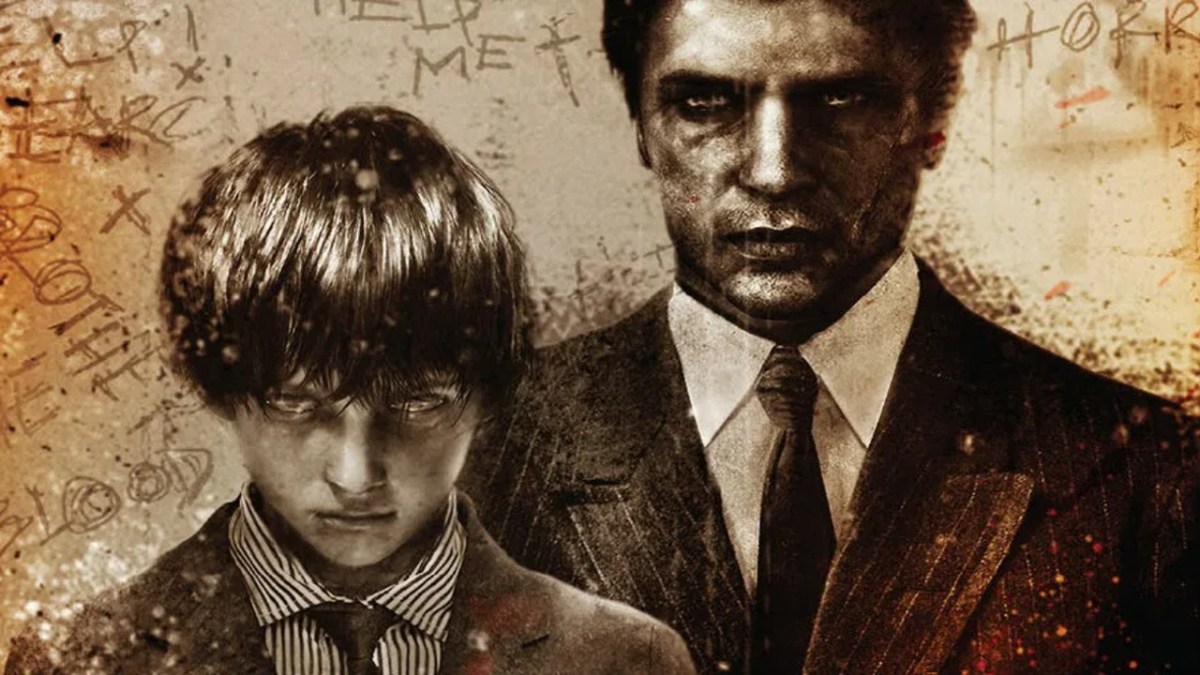



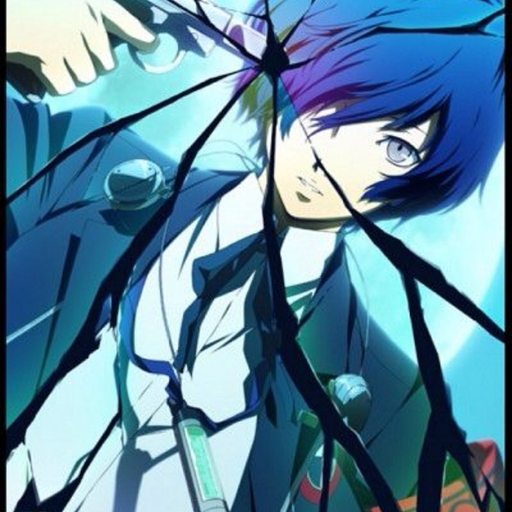
Published: Sep 30, 2023 09:00 am